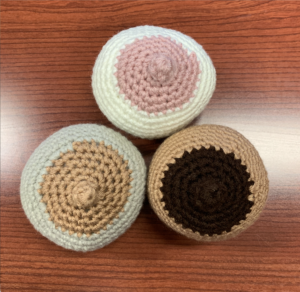
Preventing Doula Burnout Through Self-Care
As doulas, our work supporting clients through pregnancy, childbirth, and beyond can be deeply meaningful and rewarding. However, it’s also emotionally and physically demanding in ways that, without proper self-care and boundaries, can lead to burnout over time. Let’s examine some causes of burnout, warning signs to watch for, and strategies doulas can implement to sustain ourselves in this work long-term.
Causes of Burnout for Birth and Postpartum Doulas
Birth doulas are uniquely susceptible to burnout due to the intense emotional and physical demands of labor support. Being with a client through many hours of contractions, pain management, interventions, and the birth itself requires tremendous reserves of both empathy and energy. Doulas often feel a strong sense of responsibility for ensuring their client’s experience meets expectations, which can lead to stress if things don’t go smoothly. Long labors and deliveries, being awake and engaged for over 24 hours straight, and relentless around-the-clock on-call responsibilities take their toll on the body and mind. Doulas may also struggle with detaching emotionally after the profound experience of witnessing new life coming into the world. Without adequate self-care practices like recovery time in between clients, prioritizing nutrition and sleep, and self-reflection through counseling or peer support, birth doulas can become burned out by the all-consuming nature of being fully present for women during the intensity of labor.
“I have always loved being a doula. For 12 years I have served my community with compassion providing Informational, physical and emotional support but recently my giving tank has been on empty. I have had zero desire to take clients or to focus on birth work. I feel so very drained and even worse, disillusioned. This mindset has crept up on me slowly over the last year or two and it truly breaks my heart. I’m at a moment in my life that now I’m questioning my current birth work and wondering if I should reshift my focus into another direction,” Nella Goho, CD(DONA), CLC, CBE, birth doula.
Postpartum doulas can be particularly susceptible to burnout due to the emotional and physical demands of the fourth trimester. In addition to assisting with newborn care, feeding support, emotional wellness checks, and household tasks, postpartum doulas are often on-call around the clock during their client’s most exhausted state. The blurry lines between work and personal life in the early weeks at home with a new family can deplete energy quickly. Some risk factors include feeling overly responsible for both baby’s and parents’ well-being, struggles to set appropriate boundaries, having limited experience in babies or self-care, and not allowing adequate recovery time between client families. Postpartum doulas must make replenishing their compassion reserves a priority through scheduling breaks between families, ensuring supportive childcare of their own children, practicing daily self-care rituals, accessing supervision or counseling, and not taking on more clients than they can reasonably care for with balance.
All of this and struggles with boundary-setting, as is often found in early career doulas, and it’s a recipe for fatigue. Over time, these accumulative stresses can become burnout without replenishing self-care.
Goho says, “If you had asked me 3 or 4 years ago if I would ever feel this burnout from something I’ve lived so much I would have laughed at the very thought but here I am…”
Warning Signs of Burnout
Pay attention for these warning signs that indicate burnout may be setting in:
- Emotional and mental exhaustion where you lack empathy and patience
- Physical signs like headaches, sleep issues, susceptibility to illness
- Detachment from clients and lack of enthusiasm for your work
- Negativity, cynicism, and irritability with clients and colleagues
- Difficulty concentrating or lacking motivation
- Increased errors and lower quality of work
Compassion Fatigue
In addition the above factors, I want to call out compassion fatigue as well. Compassion fatigue poses a significant risk factor for and sign of burnout. Doulas are repeatedly exposed to clients’ pain, fear, grief and high-stakes emotional experiences over many labor shifts. This empathic engagement, if not balanced with self-care, can deplete one’s ability to compassionately support others over time. Doulas vulnerable to secondary traumatic stress may internalize their clients’ suffering or stressors. Constant activation of the sympathetic nervous system in crisis mode also takes a toll. Left unaddressed, compassion fatigue symptoms like hopelessness, detachment from work or avoidance of intimate details from clients can surface. Doulas must find ways to consistently replenish their compassion reservoirs, such as utilizing mentoring, limiting consecutive shifts, practicing mindfulness, and processing exposures to trauma through supervision. Addressing compassion fatigue proactively helps prevent burnout from the deep empathy at the heart of this profoundly rewarding work.
What to Do If You Think You Have Burnout
Even with the best prevention efforts, burnout can still happen over time. If you recognize warning signs in yourself, it’s important to take action for your health and career sustainability. Here are some recommendations:
- Remove yourself completely from doula work for a period of weeks or months. Strict digital and mental detox are needed for recovery.
- Seek counseling or therapy. Talking through stresses and sources of fatigue can help realign your perspective.
- Prioritize rest and self-care ritual. Schedule relaxing activities each day and minimize additional obligations as much as possible.
- Connect with your community for support. Doula colleagues may relate to burnout experiences and validate your well-being needs.
- Consider reducing your caseload long-term. Part-time or limited availability can prevent re-burnout once healed.
- Reassess your business model. Explore helpful changes like raising rates, adapting specialties or integrating an assistant.
- Give yourself permission to heal without judgment. Recovery takes time – be patient and compassionate with yourself.
- Monitor ongoing self-care. Burnout doesn’t just disappear. Stick to preventative routines and schedule mental health check-ins.
Taking proactive steps if you experience burnout symptoms is important for your longevity in this career. Your well-being and quality of life must come before obligations to your doula clients during your time together.
Preventing Doula Burnout
The good news is that burnout can be prevented or reduced through intentional self-care. Here are some strategies many doulas have found helpful:
- Learning to set limits by declining new clients when overcommitted
- Maintaining strong personal support systems to debrief stresses
- Scheduling adequate time off between clients for rest and recharge
- Prioritizing sleep, nutrition, exercise, and relaxing activities
- Using hobbies, interests, family time as a release outside of work
- Counseling, peer supervision, or life coaching for processing stresses
By following these strategies, doulas have been able to sustain their doula work without burnout for many years. Reflect on ways you can implement preventative self-care into your own practice.
Taking care of ourselves as doulas and humans must be a priority alongside caring for our clients. Small adjustments like limiting obligations during major life events or scheduling more downtime can go a long way in avoiding burnout and helping us maintain our important roles in the community for years to come.
Your well-being truly matters – start prioritizing it today.







